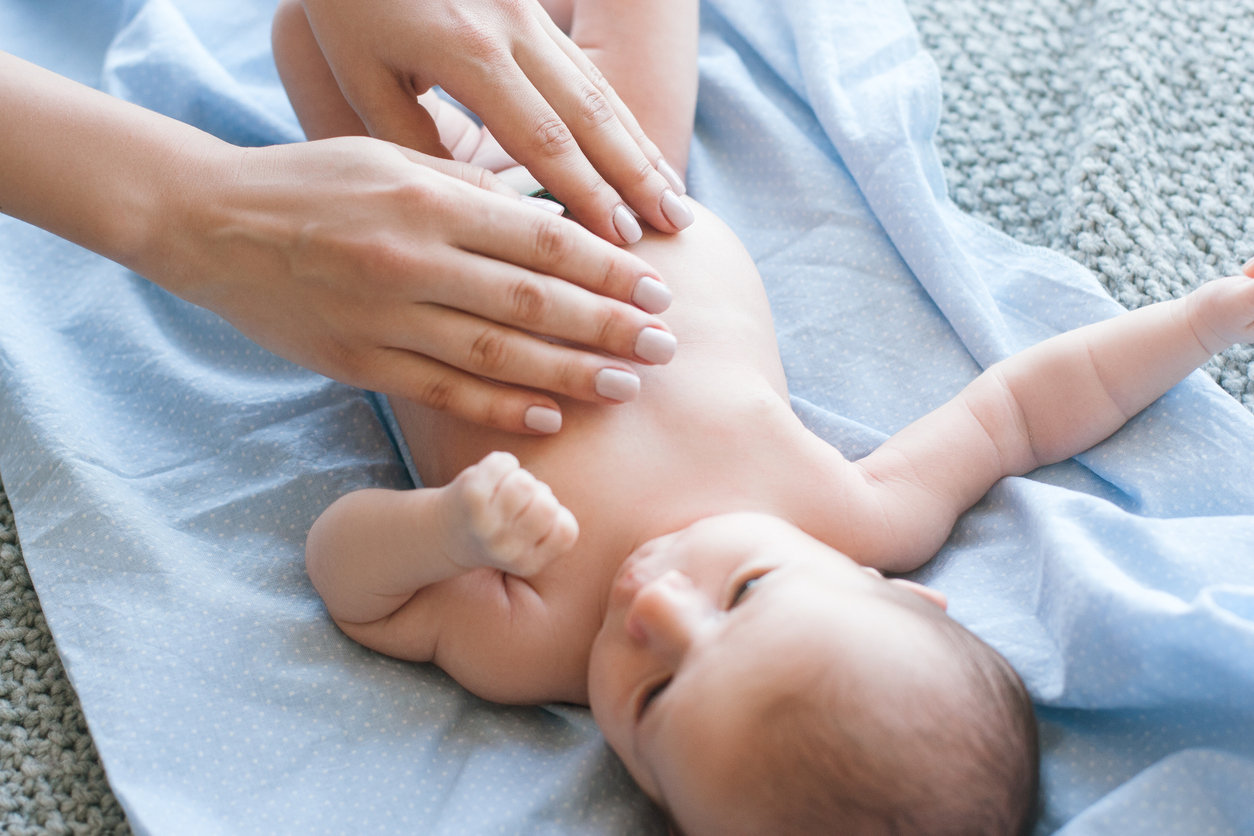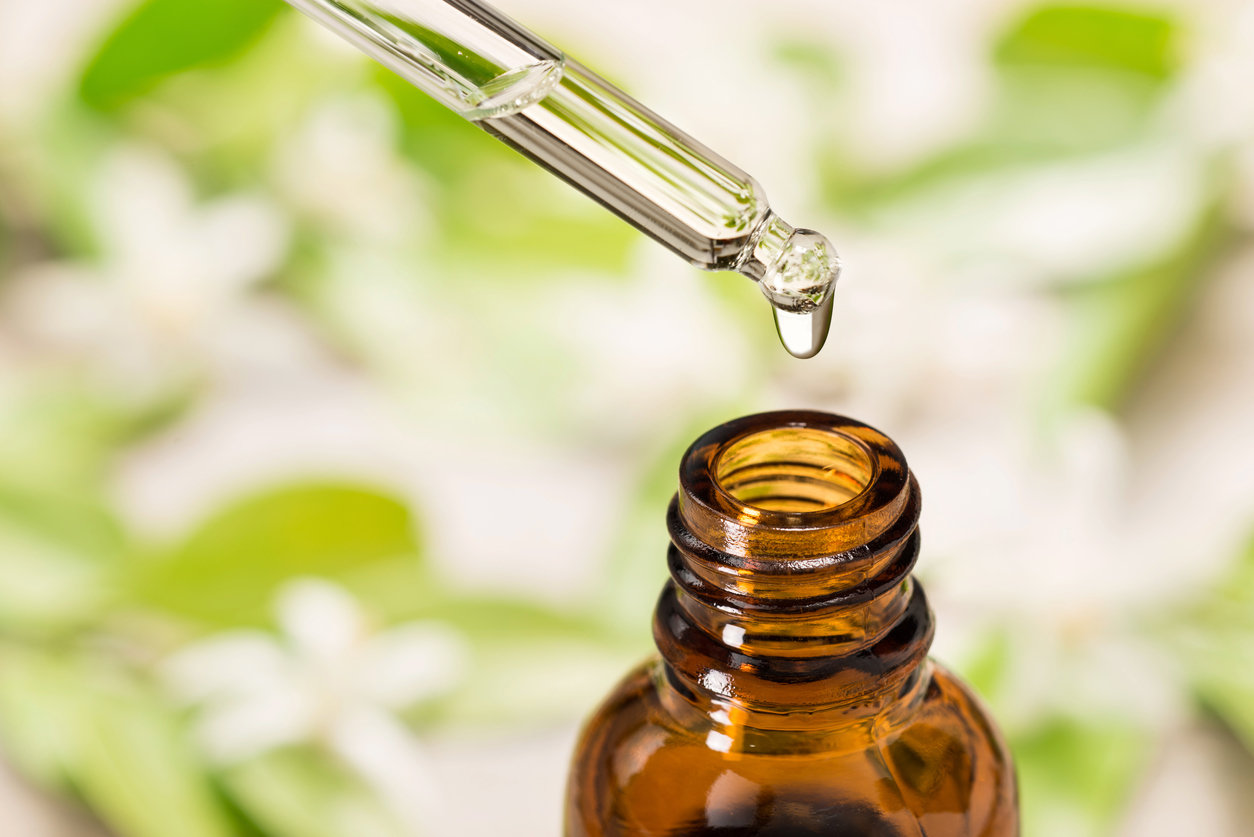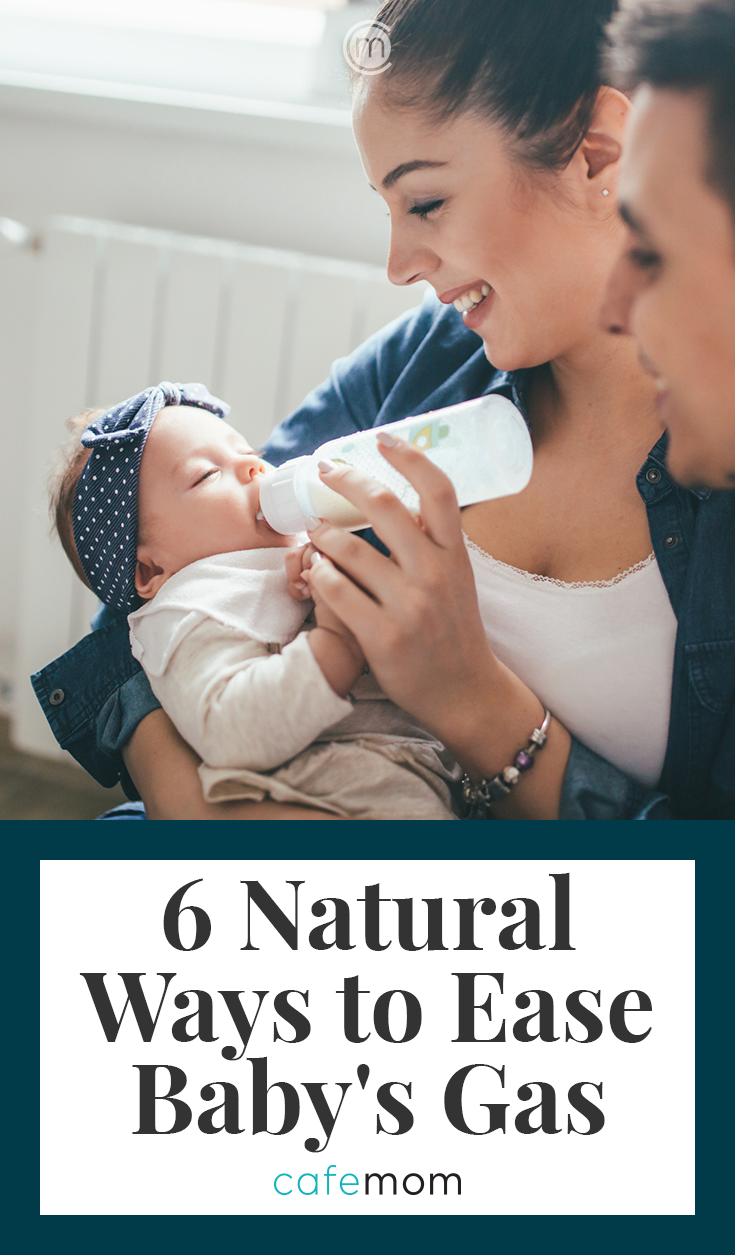
Infant gas. Everything about those two words sounds so minuscule. But when your baby is suffering from it, it feels like just the opposite. The crying; the discomfort; the lack of sleep. It feels like something so much worse!
Fact is, most newborns, particularly between the ages of 1 and 4 months, suffer from gas. Their immature guts are still developing, making digestion difficult. It doesn't matter if your little one is breast- or bottle-fed — infant gas isn't discriminatory.
More from CafeMom: 12 Things No One Ever Tells You About Baby's First Month of Life
If your baby is suffering from gas, first of all, I'm sorry. Been there, and it isn't fun. But here are 6 natural remedies that may help alleviate baby's discomfort. So everyone can be happy.
1. Baby massage.

There are a million and one YouTube tutorials on how to relieve infant gas via massage. And with good reason — it really does help! When my daughter was tiny and had gas, I used to lay her down on her changing table and do the "I Love U" massage technique. I can't say it was a miracle and prevented any and all gas from happening, but in the moment, it definitely seemed to do the trick.
2. Gripe Water.

The usual OTC medicine for infants suffering from gas is Mylicon, but there are artificial colors, preservatives, and additives in it, and some moms want to take a more natural approach. On the other hand, Mommy's Bliss Gripe Water is a combination of herbs and other natural ingredients. While it isn't medically proven to ease gas, some parents swear by it.
3. Consider your feeding technique.

If you're nursing, you may want to talk with a lactation consultant to ensure that baby's mouth is properly latching on properly and that each feeding is neither too fast nor too slow. If you're feeding from a bottle, try using an "anti-gas" bottle, like Dr. Brown's Natural Flow. Also, your baby should always be on an incline when eating, with his mouth above his belly.
4. Burp midway through feeding, when he slows down.

By burping baby midway through a feeding when he slows down, as opposed to pulling him off the breast or bottle, you're avoiding frustrating your hungry baby, which can cause him to swallow more air, causing gas.
More from CafeMom: 10 Incredible Facts About Breast Milk You've Never Heard Before
5. Baby bike ride.

It makes complete sense. Lay your baby on her back and gently pump her legs back and forth. The pedaling motion can help alleviate gas and air pockets in her tiny belly.
6. Tummy time.

If your baby is old enough for tummy time — and he enjoys it — do it more often. Regular tummy time, not just after eating, can help babies pass gas quicker.





